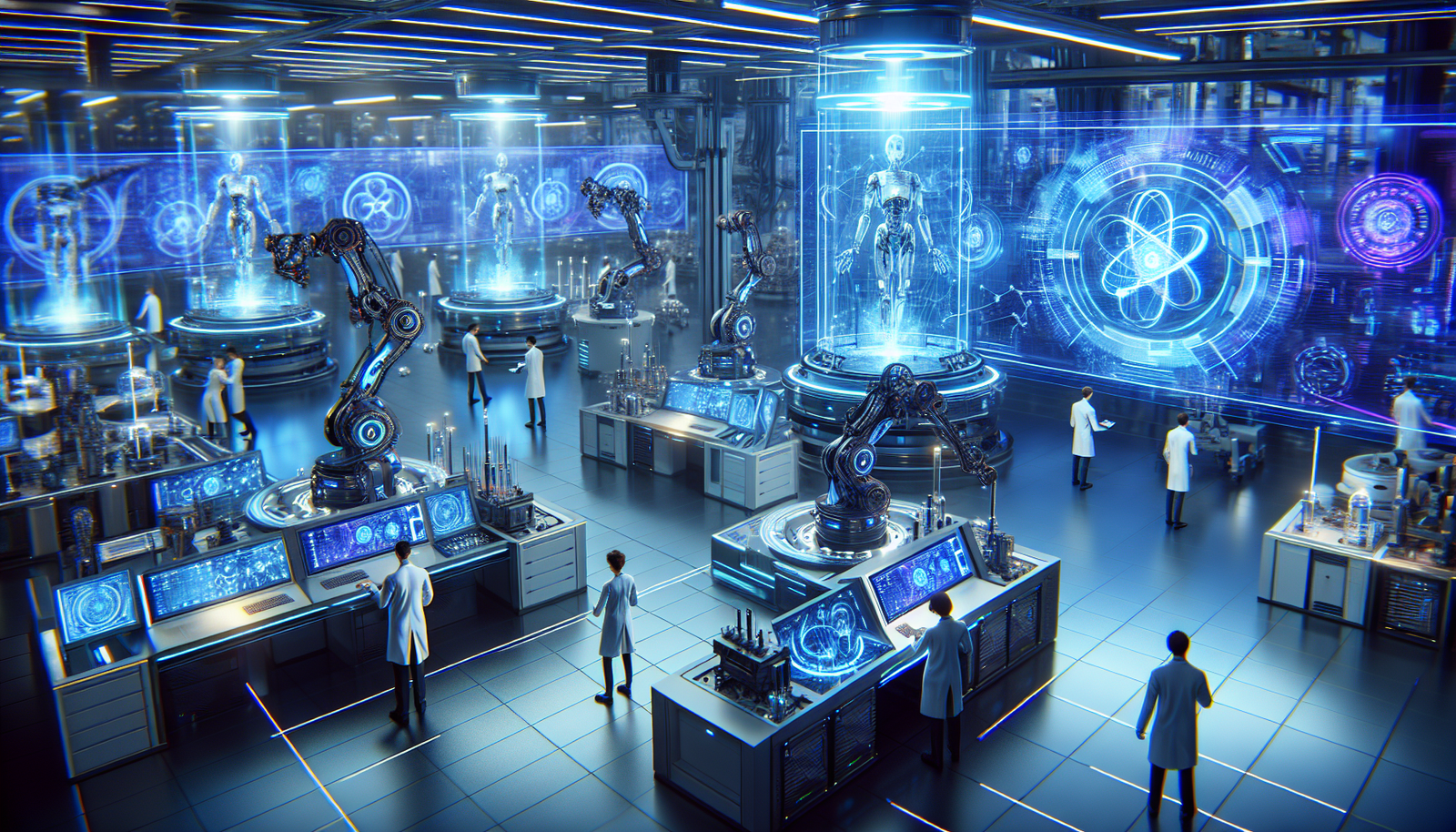Laboratory robotics is redefining scientific standards, enabling unprecedented advances in various fields. This technological revolution, fueled by Artificial Intelligence, *transforms experimental processes and optimizes research efficiency*. The urgency for an additional push is felt to overcome the persistent ethical and operational challenges. The synergy between robotics and automation, *crucial for the future of science*, embodies a fundamental issue for innovation. Laboratories must therefore *quickly adapt to these changes* to maintain their relevance and competitiveness.
Laboratory Robotics: An Innovative Turning Point
The field of laboratory robotics is experiencing significant evolution, rendering traditional research methods obsolete. Technological advancements now allow researchers to access sophisticated tools, integrated with automation and artificial intelligence. This convergence of different scientific disciplines transforms the organization of studies and experiments, thereby facilitating the production of results in record time.
Integration of Artificial Intelligence
Recent innovations in the artificial intelligence sector are proving crucial for the growth of laboratory robotics. By combining AI with robotics, laboratories have tools capable of analyzing massive data and making decisions based on machine learning algorithms. The synergy between these two fields fosters increased collaboration between machines and humans, thus optimizing scientific research.
Practical Applications and Impacts
Laboratory robotics manifests through various applications, extending to areas such as surgery, biotechnology, and medical research. Intelligent robots facilitate the execution of repetitive tasks, thereby freeing up space for more complex investigations. These advancements are also visible in the handling of delicate substances, where precision is paramount. The results obtained demonstrate improved efficiency, leading to a significant increase in the productivity of research teams.
Challenges to Overcome
Despite notable progress, challenges remain. Implementing these technologies requires a significant investment in both financial and human resources. Laboratories must also address ethical concerns related to the increased use of robots, particularly regarding security and the management of sensitive data. Collaboration with experts in ethics and regulation becomes essential to establish acceptable benchmarks and ensure a smooth integration of technologies.
Partnerships and Interdisciplinary Collaborations
The development of advanced robotics in laboratories depends on partnerships established between universities, companies, and research organizations. Cross-sector collaborations generate synergies, promoting the exchange of knowledge and resources. Initiatives such as the joint Mach4 laboratory between the University of Poitiers, CNRS, and ITECA demonstrate this model perfectly. Such dynamics propel robotics research to unprecedented levels, thereby strengthening France’s strategic position in this high-potential field.
Towards a Promising Future
The journey of laboratory robotics is shaped as a quest for constant innovation. By integrating the latest technologies, researchers are outlining a future where robotics will no longer just be a tool, but a true collaborator in the research effort. As growing challenges demand rapid and effective solutions, the robotics market is poised to welcome new innovations that will profoundly transform the scientific landscape.
Experts predict that the future of laboratory robotics will lie in the development of even more intuitive and autonomous tools, capable of adapting to the needs of each project. Thus, the emergence of humanoid robots working in synergy with human teams represents a significant challenge for the years to come.
Frequently Asked Questions about Laboratory Robotics
What is laboratory robotics?
Laboratory robotics refers to the use of robots to automate and facilitate scientific tasks, increasing efficiency and accuracy in research environments.
How does robotics transform research processes in laboratories?
Robotics is revolutionizing research processes in laboratories by reducing human errors, speeding up analysis times, and allowing for complex experiments to be performed with constant oversight.
What are the benefits of integrating artificial intelligence in laboratory robotics?
Integrating artificial intelligence in laboratory robotics enhances the autonomy of robots, optimizes learning algorithms, and makes systems more adaptable to unforeseen changes.
What types of tasks can robots perform in a laboratory?
Robots can perform a variety of tasks, including pipetting, handling chemical substances, managing samples, and executing repetitive experimental protocols.
What is the importance of collaborations between researchers and robotics companies in this field?
Collaborations between researchers and robotics companies are essential for developing tailored solutions that meet the specific needs of laboratories, fostering innovation and improving research methods.
What challenges does laboratory robotics need to overcome?
Laboratory robotics must overcome challenges such as standardizing procedures, integrating existing technologies, and managing implementation and maintenance costs.
How do advancements in robotics influence the future of science and research?
Advancements in robotics offer new perspectives for more dynamic research, allowing experiments to be conducted faster and pushing the boundaries of scientific discovery.
Why is it urgent to support innovation in robotics for laboratories?
It is urgent to support innovation in robotics to enable laboratories to remain competitive, improve their productivity, and tackle increasingly complex and urgent scientific problems.
What role do public policies play in the development of laboratory robotics?
Public policies play a crucial role by providing funding, establishing favorable regulations, and promoting collaborative research between the public and private sectors.
How can robotics training enhance researchers’ skills?
Robotics training enhances researchers’ skills by providing them with the technical knowledge needed to effectively integrate robotic technologies into their research work.






